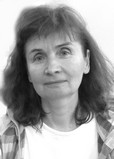Conceptual framework of technical and tactical training concept for persons with health disabilities in chess sport
Фотографии:
ˑ:
PhD, Associate Professor I.V. Mikhailova1
Dr.Hab., Associate Professor S.N. Fomina1
1Russian State Social University, Moscow
Despite the fact that chess sport, including its adaptive forms, is one of the most popular disciplines in the post-Soviet space, its methodology and conceptual apparatus has not yet been formed in Russian sports science; the research subject is often blurred in scientific papers. There are a large number of fundamental and applied researches on technical and tactical training conducted by theorists and practitioners of chessplay.
Objective of the study was to structure and formalize the conceptual field of the concept of technical and tactical training of people with health deviations, taking into account the systemic directions and priority paths of development of chess sport.
Methods and structure of the study. When using the inductive approach to chess education, the author’s semantic network of the concept of technical and tactical training of people with health deviations was presented. The network structure is formed by the peaks of the subject area - sports and social spheres. As part of the theoretical experiment, we reconsidered the content and structure of chessplay as a form of adaptive sport and introduced a new fundamental concept of chess methodology - adaptive chess sport.
Keywords: adaptive chess sport, technical and tactical training, people with health deviations, semantic network, semantic core, digitalization.
References
- Abalyan A.G. Sistema kompleksnogo pedagogicheskogo kontrolya v podgotovke sportsmenov-paralimpiytsev vyisokogo klassa [Integrated pedagogical control system in training of elite Paralympic athletes]. Doct. diss.. abstr. (Hab.). M., 2019. 37 p.
- Avakova L.A. Strukturno-semanticheskiy i funktsionalnyiy analiz terminosistemyi Shahmatyi [Structural-semantic and functional analysis of chess terminology]. PhD diss.. abstr.. Maikop, 2006. 21 p.
- Alifirov A.I., Mikhaylova I.V., Makhov A.S., Belov M.S. Teoreticheskie i prakticheskie aspekty vnedreniya shakhmat v rossiyskoy shkole [Introducing chess education in Russian school system: theoretical and practical aspects]. Teoriya i praktika fiz. kultury. 2018. no. 5. pp. 53–55.
- Vershinin M.A., Ch.A. Bovaev Osobennosti formirovaniya strategicheskogo masterstva shahmatistov [Features of formation of strategic skills in chess players]. Teoriya i praktika fiz. kultury, 2009. # 5. pp. 72-77.
- Evseev S.P. Teoriya i organizatsiya adaptivnoy fizicheskoy kulturyi [Theory and organization of adaptive physical education]. Textbook. M.: Sport, 2016. 616 p.
- Linder V.I., I.M. Linder Koroli shahmatnogo mira: Zhizn i igra skvoz prizmu entsikl [Kings of the chess world: Life and play through the prism of the encyclical]. M.: GRE: Terra-sport, 2001. 974 p.
- Matveyev L.P. Osnovy obshchey teorii sporta i sistemy podgotovki sportsmenov [Fundamentals of general theory of sports and athletic training system]. Kiev: Olimpiyskaya literatura publ., 1999, 317 p.
- Mikhaylova I.V., Alifirov A.I. Shakhmaty dlya lits s narusheniyami psikhicheskogo i intellektualnogo razvitiya [Chess game application for people diagnosed with mental and intellectual disorders]. Teoriya i praktika fiz. kultury, 2017, no. 3, pp. 46-47.
- Novikov A.M., D.A. Novikov Metodologiya [Methodology]. M.: SINTEG, 2007. 668 p.
- Popov R.V. Russkaya sportivnaya terminologiya (Na materiale basketbolnoy terminosistemyi) [Russian sports terminology (case study of basketball terminology system)]. PhD diss.. Severodvinsk, 2003. 264 p.
- Rylov A.S. Terminologicheskaya sistema «Futbol» v russkom yazyike [Russian Football terminological system ]. PhD diss.. Nizhniy Novgorod, 1998. 250 p.
- Stepanova O.N., Makhov A.S., Latushkina E.N. et al. Upravlencheskaya deyatelnost trenera: vidy, obyekty, kriterii effektivnosti [Coach's management activities: types, objects, performance criteria]. Teoriya i praktika fiz. kultury, 2016, no. 3, pp. 66-68.
- Tsvetkova, N.A., Fomina, A.I.R.S.N., Petrova, E.A.,Shcheglova, A.S. Personality traits of women of mature age with high and low levels of need in self-development Actualization. Man in India. 2016. Т. 96. № 7. pp. 2025-2051.
- Fomina, S., Sizikova, V., Shimanovskaya, Y., Kozlovskaya, S., Karpunina, A. The effect of teaching and supply chain management on employees' skills in small and medium sized enterprises of Russia // International Journal of Supply Chain Management. Volume 8, Issue 4, August 2019, pp. 930-938



 Журнал "THEORY AND PRACTICE
Журнал "THEORY AND PRACTICE